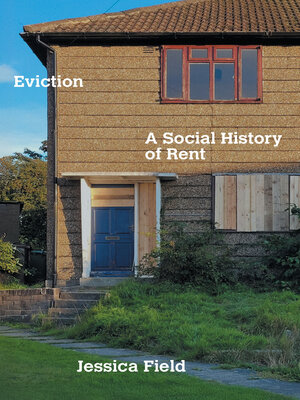
Sign up to save your library
With an OverDrive account, you can save your favorite libraries for at-a-glance information about availability. Find out more about OverDrive accounts.
Find this title in Libby, the library reading app by OverDrive.



Search for a digital library with this title
Title found at these libraries:
| Library Name | Distance |
|---|---|
| Loading... |
An alternative history of housing in post-war Britain – a cautionary tale of rent, precarity, and working-class resistance
Grounded in personal experience, Eviction uncovers a hidden history of housing injustice and working-class resistance in what has become a perennial battleground for social conflict in modern Britain.
In 2017, Jessica Field’s parents and more than a hundred of their neighbours received warning of imminent eviction. Their corporate landlord intended to demolish their affordable, privately rented homes to replace them with middle-class houses for sale. Led by the women of the estate, tenants launched an anti-eviction campaign to save their close-knit community from destruction.
The neighbourhood was the last remnant of a 1950s National Coal Board estate constructed to house local miners. When the coal industry declined in the 1970s, whole estates were auctioned off to speculators. Low-income tenants were at the mercy of global investors. Houses were left to rot. Rents soared. Tenants were exploited every step of the way. Yet time and again, tenant activists – especially women – fought back.
Eviction is a history of the British housing crisis in microcosm.
Grounded in personal experience, Eviction uncovers a hidden history of housing injustice and working-class resistance in what has become a perennial battleground for social conflict in modern Britain.
In 2017, Jessica Field’s parents and more than a hundred of their neighbours received warning of imminent eviction. Their corporate landlord intended to demolish their affordable, privately rented homes to replace them with middle-class houses for sale. Led by the women of the estate, tenants launched an anti-eviction campaign to save their close-knit community from destruction.
The neighbourhood was the last remnant of a 1950s National Coal Board estate constructed to house local miners. When the coal industry declined in the 1970s, whole estates were auctioned off to speculators. Low-income tenants were at the mercy of global investors. Houses were left to rot. Rents soared. Tenants were exploited every step of the way. Yet time and again, tenant activists – especially women – fought back.
Eviction is a history of the British housing crisis in microcosm.







